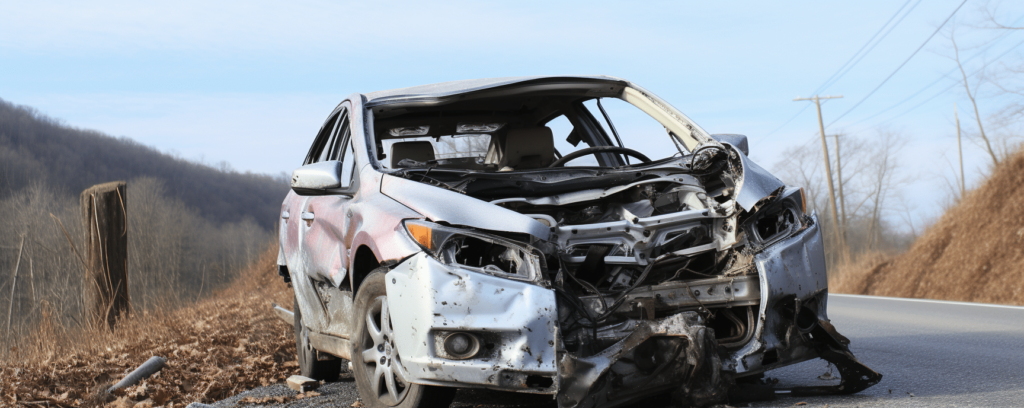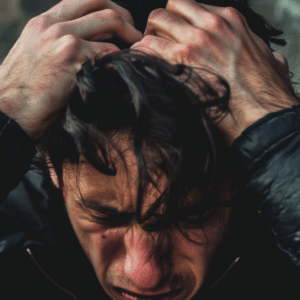What Happens if Your Uber Driver Crashes? – Explained
Last updated Wednesday, February 19th, 2025

If you’re ever involved in a crash while riding in an Uber, it’s crucial to know the proper steps to ensure safety and what you’re entitled to in terms of compensation. This article cuts through the confusion to outline exactly what happens if your uber driver crashes, detailing immediate actions, insurance coverage nuances, and how to navigate potential legal issues without overwhelming you with jargon.
Key Takeaways
- Immediately after an Uber accident, it is crucial to assess injuries, call emergency services if needed, alert law enforcement, and document the incident with photos and witness information.
- Insurance coverage during an Uber accident varies based on the driver’s status (offline, online but no ride accepted, or on a trip) and involves a mix of the driver’s personal insurance and Uber’s insurance policy, with specifics dependent on state laws and the driver’s level of activity within the app.
- Liability determination following an Uber crash is complex and can involve the Uber driver, Uber as a company, other involved parties, and considerations of negligence, with the potential for shared fault under comparative negligence laws.
Immediate Steps Following an Uber Crash
Immediately after an Uber accident, the whirlwind of events can leave you disoriented. Staying focused and taking appropriate action is vital. First and foremost, check for injuries. If anyone is hurt, the first call should be to emergency medical services. Your safety, and that of others, is paramount.
Once this is ensured, your next step is to alert law enforcement and initiate a response from Uber through the app.
Check for Safety and Injuries
After an accident, adrenaline might mask pain and injuries. Therefore, assessing yourself and others for possible injuries is of utmost importance. Whether you’re a passenger or the driver, your top priority is to call for emergency medical attention if injuries are present. Even minor injuries should be checked by a medical professional.
Remember, some injuries, like whiplash or internal bleeding, might not show symptoms immediately.
Alert Law Enforcement
After confirming everyone’s safety, you should notify the authorities. Contacting the police is not just a civic duty; it’s a crucial step for later insurance claims. The police will create an official report, capturing essential details such as the date, time, and location of the accident, along with names and contact information of those involved.
This report serves as a legal document, safeguarding you against false accusations and providing clarity through a detailed record of the incident.
Capture Details of the Incident
During a stressful situation like an accident, the significance of documenting the incident can easily be overlooked. However, taking photos and gathering details from the scene can play a pivotal role in your claim process. So, what should you be documenting? Start with capturing photos of the vehicles involved, focusing on any visible damages. Then, gather contact and insurance information from the other involved parties.
But what if there were witnesses? Their testimonies can be crucial should there be disputes about the accident. Hence, make sure to get their contact information as well. In essence, the more information you gather, the stronger your case will be when claiming compensation.
Understanding Insurance Coverage in Ridesharing Accidents
Insurance coverage in ridesharing accidents can be a complex maze to navigate. Multiple policies could come into play, including the driver’s personal insurance and Uber’s own policy.
We’ll explore these subtleties further, beginning with the implications of insured drivers, their driver’s insurance company, and their personal insurance.
Driver’s Personal Insurance Role
The driver’s personal insurance plays a significant role in the event of a rideshare accident. When the driver is offline, or not actively using the Uber app, their personal auto insurance serves as the primary coverage in the event of an accident. However, if the driver is online but has not yet accepted a ride request, their personal auto insurance may still provide some coverage. This coverage typically includes liability coverage, but the specifics can vary from state to state.
Scope of Uber’s Insurance Policy
Next, we’ll focus on understanding Uber’s insurance policy. Once a driver logs into the Uber app, Uber’s insurance policy kicks in. The level of coverage depends on the driver’s status at the time of the accident. For example, if an accident occurs while the driver is online and available for a ride, Uber provides third-party liability coverage.
However, the coverage escalates once the driver accepts a trip. In such cases, Uber maintains at least $1,000,000 in third-party liability coverage for property damage and injuries if the driver is found at fault. Additionally, Uber’s policy includes personal injury protection and medical payments coverage, regardless of who’s at fault, along with uninsured/underinsured motorist bodily injury coverage.
Note that commercial drivers on Uber, such as those operating limousines or black cars, are required to maintain their own commercial auto insurance. In essence, the scope of Uber’s insurance policy is extensive, but it heavily depends on the driver’s status and applicable state regulations.
Legal Implications and Liability Determination

- Negligence
- Driver error
- Vehicle defects
- Road conditions
- Other drivers’ actions
We’ll examine these components to gain a clearer understanding of how liability is determined, including the role of liability insurance.
Parties Potentially Held Liable
In an Uber accident, the parties that could potentially be held liable include the Uber driver, other drivers, and even Uber itself. If the Uber driver is at fault and a passenger is injured, Uber’s insurance might be responsible for paying damages. In severe cases, such as a wrongful death resulting from an Uber accident, both the driver and the rideshare company can be held accountable.
On the other hand, if another driver is at fault, that driver’s insurance is primarily responsible for the damages. However, Uber’s contingent liability coverage can step in to provide additional insurance. In essence, determining liability in a rideshare accident can involve not only the rideshare driver and company but also other drivers and possible third-party entities.
The Role of Negligence in Liability
While multiple parties could be held liable, determining who exactly is at fault for the accident often hinges on the concept of negligence. This could involve behaviors such as distracted driving, speeding, or failure to obey traffic laws. In some cases, mechanical failures or improper vehicle maintenance leading to an accident could result in liability for the driver, the rideshare company, or a third-party maintenance provider, all being parties involved.
However, local and state laws, as well as company policies, influence the determination of liability in rideshare accidents. In some jurisdictions, the principle of comparative negligence allows for liability to be shared between parties based on their degree of fault. Hence, it is vital to engage an expert accident lawyer who can conduct a thorough investigation to establish negligence and build a persuasive case.
Filing an Uber Accident Claim
After managing the immediate repercussions of an Uber accident and comprehending the complexities of insurance coverage and liability, you should proceed to file an Uber accident claim. This process involves reporting the accident to Uber and dealing with insurance companies.
Initiating the Claim with Uber
Initiating an Uber accident claim is straightforward. The driver can report the accident via the Driver app by navigating to ‘Trip Issues and Adjustments’ and selecting ‘I was in a crash’. Immediate assistance after an accident can be sought using the ‘Call Support’ feature located in the Help section of the Driver app. It’s worth noting that this should be done as soon as possible after the accident to ensure a timely response.
Dealing with Insurance Companies
Dealing with insurance companies can be a daunting task. After an accident, obtaining multiple repair estimates is key to determining if the insurance offer adequately covers repair costs. It’s also important to negotiate with the claims adjuster for a more favorable settlement if the initial offer does not fully cover repair costs.
Remember to get the settlement terms in writing from the insurance company for clarity and to ensure all parties agree to the conditions. In case the insurance payout offer is inadequate, hiring a lawyer for negotiation or litigation can be advantageous, especially for substantial claims.
Seeking Compensation for Damages and Losses
Once you’ve filed an Uber accident claim, the next step is to seek compensation for damages and losses. This includes both economic and non-economic damages, and in severe cases, additional car accident claims can be pursued.
Economic and Non-Economic Damages
Economic damages typically encompass tangible financial costs such as medical bills, lost wages due to the inability to work, and property damage. On the other hand, non-economic damages compensate for subjective, non-monetary losses such as pain and suffering, loss of enjoyment of life, and emotional distress. The amount of non-economic damages is often influenced by the severity of injuries sustained.
Pursuing Additional Claims for Serious Outcomes
In the event of serious outcomes such as wrongful death, additional claims can be pursued. Compensation in such cases can include:
- Lost wages
- Medical expenses
- Funeral services
- Recompense for the loss of companionship
The family of a victim in a wrongful death case may also receive compensation for mental anguish and emotional trauma.
While not common, punitive damages can be awarded in cases where the at-fault party’s behavior is willfully negligent or malicious.
The Role of an Accident Lawyer in Your Uber Crash Case
Dealing with insurance companies and understanding the legal intricacies of a car accident, especially an Uber accident, might feel overwhelming, but an Uber accident attorney can significantly alleviate this burden. They bring in-depth knowledge of ridesharing law and serve as a dedicated advocate, protecting your rights and negotiating for fair compensation.
Expertise in Ridesharing Law
Ridesharing law is a specialized field, and having a lawyer with expertise in this area can be invaluable. They can effectively assess your case and pinpoint liability, guiding you through the complex landscape of multiple insurance policies and parties.
A personal injury lawyer specializing in rideshare accidents can provide crucial guidance with their deep understanding of relevant laws and regulations.
Advocacy and Representation
Beyond their legal expertise, accident lawyers serve as your advocates. They:
- Negotiate with insurance companies to secure fair compensation for damages and injuries
- Help you navigate the legal process and seek justice
- Provide emotional support and guidance during a difficult time
The process of seeking justice through legal representation can also be a crucial part of emotional recovery for individuals involved in rideshare accidents.
Long-Term Considerations After a Rideshare Accident
The impacts of a rideshare accident can stretch far beyond the immediate aftermath. Significant injuries, such as traumatic brain injury or spinal cord injury, might require long-term care services. Additionally, survivors of rideshare accidents may face long-term psychological impacts, including depression, anxiety, and PTSD, necessitating ongoing mental health counseling.
Preventive Measures for Rideshare Passengers
Although comprehending the legal aspects of Uber accidents is essential, it’s more beneficial to prevent such incidents. As a rideshare passenger, you can take several preventive measures to ensure your safety. Before boarding, verify the identity of your rideshare drivers and match the car details provided on the rideshare app with the actual vehicle and driver.
Share your trip details with a trusted friend or family member so they can track your location and know when you’ve arrived safely.
Frequently Asked Questions
Does Uber cover crashes?
Yes, Uber covers crashes through their insurance policy, which includes coverage for medical bills, lost wages, and other damages caused by uninsured or underinsured drivers. If you were online and available for a trip at the time of the accident, Uber maintains insurance on your behalf to cover your liability for injuries and property damage.
What happens if you get in an accident while driving for Uber?
If you get in an accident while driving for Uber, it may lead to the deactivation of your account if you are involved in three accidents within three years, regardless of fault. Uber deactivates accounts to minimize liability and ensure the safety of its platform.
What happens when an Uber Eats driver crashes?
If an Uber Eats driver crashes while online but not actively delivering, the insurance coverage for bodily injury and property damage is still there, but the amount covered is less compared to when actively involved in a delivery. It’s important to be aware of the coverage differences.
What should I do immediately after an Uber accident?
Immediately after an Uber accident, ensure everyone’s safety, call for medical assistance if needed, report the accident to the police, and initiate a response from Uber through the app.
Who can be held liable in an Uber accident?
The liable parties in an Uber accident could include the Uber driver, other drivers involved, or even Uber itself, depending on the circumstances.











